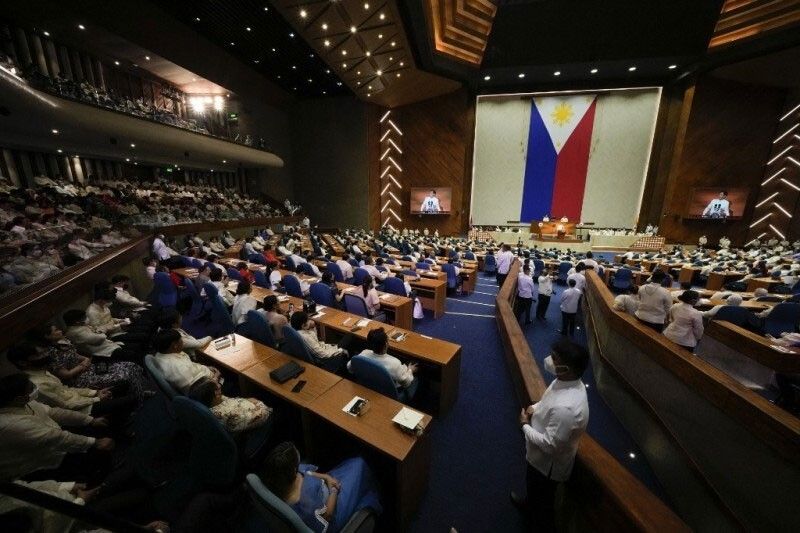House bill seeks penalties for creating, spreading 'fake news'

MANILA, Philippines — A bill has been filed at the House of Representatives pushing for the criminalization of the "creation and dissemination" of "fake news" — the common term for misinformation and disinformation.
In filing House Bill No. 2971, Reps. Josephine Lacson-Noel (Malabon) and Florencio Gabriel Noel (An Waray party-list) sought amendments to the Cybercrime Prevention Act of 2012 to include a definition for "fake news" which they said refers to "misinformation and disinformation of stories, facts, and news which is presented as a fact, the veracity of which cannot be confirmed, with the purpose of distorting the truth and misleading its audience."
The Cybercrime Prevention Act was subject to petitions at the Supreme Court, which ruled parts of it unconstitutional. The law's provision on cyber libel carries harsher penalties and a longer prescriptive period than regular libel.
Under the bill, "the creation and dissemination of fake news [...] committed through a computer system or any other similar means which may be devised in the future" constitutes the punishable offense of cybercrime. It does not specify what the "truth" is.
Any person found guilty of any of the punishable acts shall be punished with imprisonment for six years and one day to twelve years or a fine of at least P200,000.
"People have been repeatedly misinformed about what they consider to be data and facts through the advent of 'fake news'...both misinformation and disinformation must not go unpunished, especially since it poisons the minds of our citizens by distorting the truth," Lacson-Noel wrote in her explanatory note.
Per a February 2022 survey by the Social Weather Stations, some 58% of Filipinos believe that the spread of fake news online is a serious issue while 51% find it ‘difficult’ to spot fake news. The Philippines has been called "patient zero" for disinformation on social media, prompting newsrooms, the academe and civil society organizations to join fact-checking coalitions in the run-up to the May elections.
Of note, the two lawmakers also pointed out in their explanatory note that "not even credible sources like media outlets and broadcast stations were spared of the false information spread out by paid trolls to distort truth and deliberately mislead people to think the opposite of what is actually happening."
Three such bills were previously filed in the 18th Congress, with some specifically pointing to "fake news" on social media. Two were referred to the Committee on Public Information while the remaining one was passed to the House justice panel, but all three ultimately languished.
Risks for free press, free speech
Reporters Without Borders, in its 2021 World Press Freedom Index, noted that several countries in Southest Asia "adopted extremely draconian laws or decrees in the spring of 2020 criminalizing any criticism of the government’s actions and, in some cases, making the publication or broadcasting of ‘false’ information punishable by several years in prison." It said that some countries "used the pandemic to reinforce obstacles to the free flow of information."
Disinformation researcher Jonathan Corpus Ong, writing for the New York-based Social Science Research Council in January 2021, said that Southeast Asia "has been a leading example of 'legislative opportunism' through which moral panics about disinformation have been exaggerated and hijacked by state leaders to gain control over the digital environment."
The Anti-False Content bill was also introduced in the Senate in July 2019 which rights groups panned as sweepingly broad due to its power to stifle discussion on websites worldwide.
"The Philippines ‘false content’ bill, if passed, would make a government department the arbiter of permissible online material," Linda Lakhdhir, Asia legal advisor at Human Rights Watch, said then. She pointed out that the proposed law did not specify how authorities were to determine whether a statement is true or false, or what standards are to be used in doing so.
"A ‘fake news’ law would open the door for the government to wantonly clamp down on critical opinions or information not only in the Philippines, but around the globe. The bill should immediately be withdrawn and revised to meet international free expression standards."
- Latest
- Trending




























